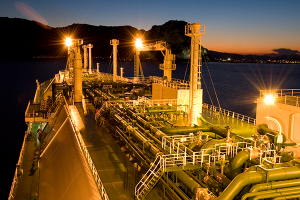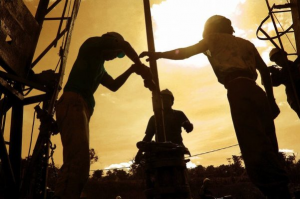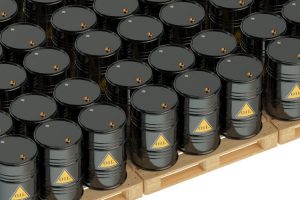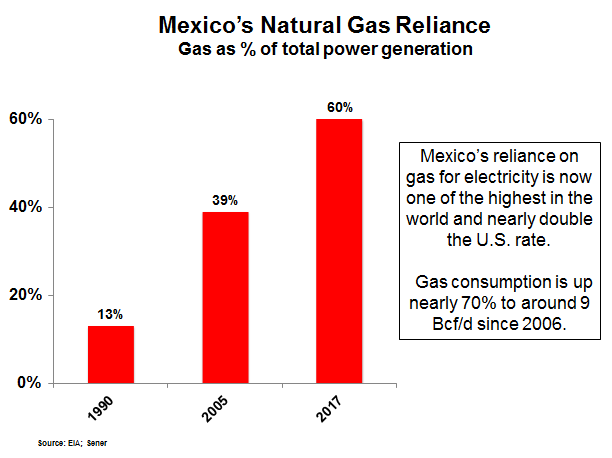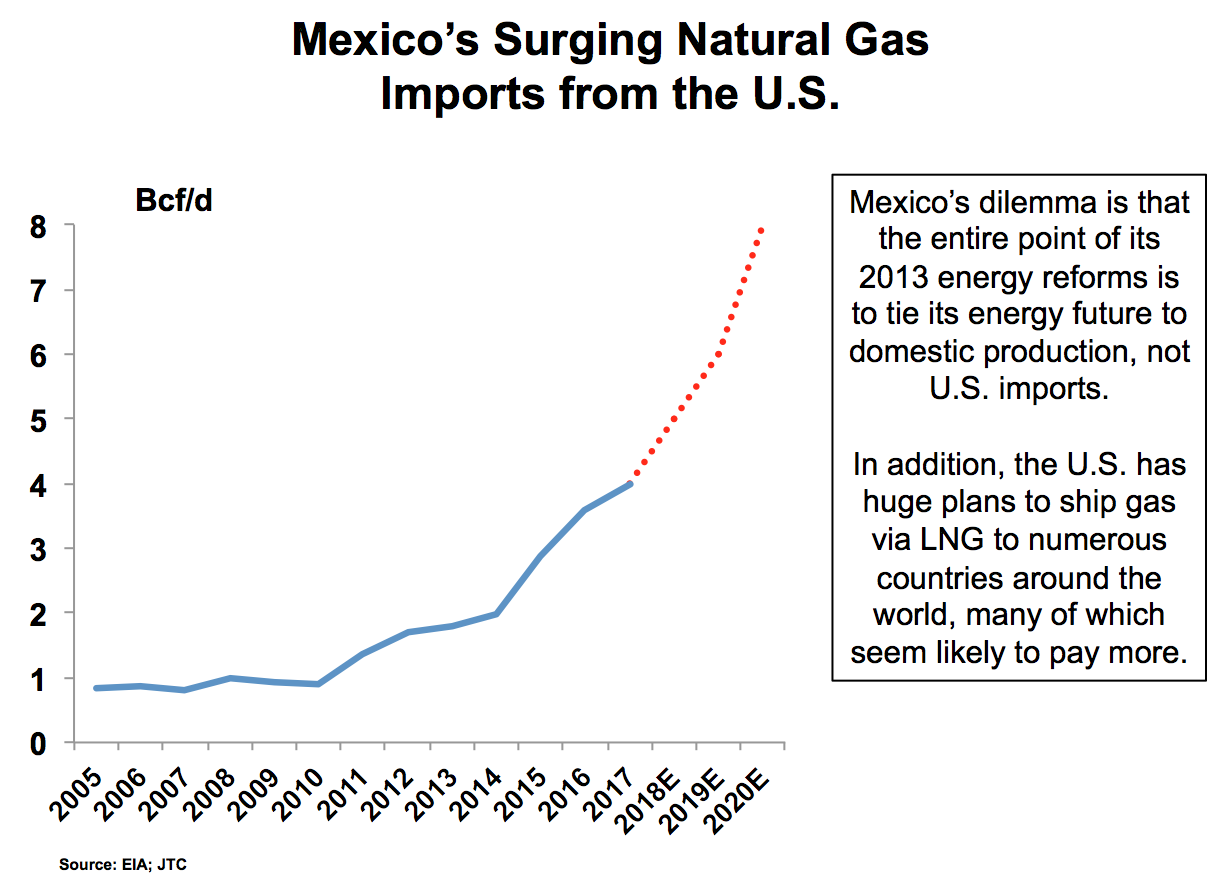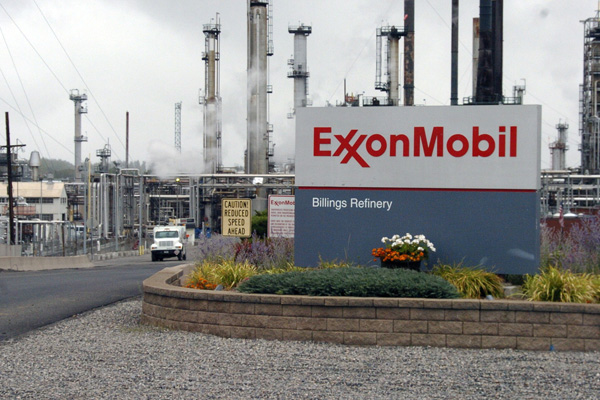FROM: Interamerican Dialogue / Lisa Viscidi / 9 de Enero de 2018
2018 will be a pivotal year for energy in Latin America, as the region’s top oil producers are set to hold presidential elections that could lead to sweeping policy changes. Recent market-oriented energy reforms in countries like Brazil and Mexico have increased investment pledges, but the region is still seeing an overall oil production decline.
The upcoming presidential elections could be decisive in advancing policies to maintain oil revenues. However, in the current climate of growing polarization and deeply unpopular incumbents in Latin America, the elections are generating tremendous political uncertainty. Several left-leaning candidates are against current oil policy but not for the same reasons. Some oppose investor-friendly policies based on oil nationalism; others contest the exploitation of energy resources on environmental grounds.
2018 will be a pivotal year for energy in Latin America, as the region’s top oil producers are set to hold presidential elections that could lead to sweeping policy changes.”
In Mexico, independent candidates are allowed to run for the first time in the July presidential election, opening the way for a broad field of contenders. The front-runner, leftist nationalist Andrés Manuel López Obrador (AMLO), has made opposition to Mexico’s 2013 energy reform a cornerstone of his campaign. President Enrique Peña Nieto of the PRI party, who led the reform, is hugely unpopular. The business-friendly PAN party, which provided the critical votes to pass the reform in congress, is divided. Polls show AMLO with over 30 percentof votes, a sizable lead over the PRI and PAN candidates who are polling at about 17% each. Mexico has no second round of elections, so a candidate can win with a relatively small percentage of votes.
The energy reform eliminated Pemex’s decades-long monopoly on oil production, and dozens of private companies have since won contracts in bid rounds that will bring an estimated $59 billion in investment.”
The energy reform eliminated Pemex’s decades-long monopoly on oil production, and dozens of private companies have since won contracts in bid rounds that will bring an estimated $59 billion in investment. But this is only a fraction of the capital needed to return to Mexico’s 2004 peak oil production of 3.4 million barrels per day (mbd) compared to 2 mbd today. The government’s best-case projections see production rising only in 2019, meaning Mexicans will cast their vote before the reform starts to bear fruit.
AMLO has seized on weak oil production as proof that the sector’s opening is not delivering as promised and pledged to hold a public referendum to overturn the reform. Only a two-thirds congressional majority – which AMLO is unlikely to secure – can undo the constitutional reform, and it would be legally difficult to change existing contracts. And, despite his provocative stance, AMLO could choose to support private investment once in office in a bid to generate more oil revenue for his government. However, the president has broad powers to halt the opening of the sector. The energy ministry designs oil auctions and their timelines, selects the contract type for each oil block and can hand any field to Pemex. Many investors fear that an AMLO administration would make terms less attractive or cease holding the auctions that have allowed private firms to enter the country altogether.
In Brazil, the October presidential elections will also be a bellwether for the energy sector. President Michel Temer introduced energy policies making terms more attractive for international investors. He removed onerous local content requirements from bidding criteria, set a regular pre-salt bid round schedule and signed a law allowing companies other than state oil giant Petrobras to operate Brazil’s high-cost offshore pre-salt fields. The results have already been visible; in an October pre-salt auction, six of eight blocks on offer received bids, and signing bonuses totaled $1.9 billion.
While it is too early for formal candidacy announcements, former President Luis Inácio Lula da Silva is currently the clear front-runner despite having been convicted in July on charges of corruption, which he is appealing. If elected, Lula would likely reinstate his previous nationalist oil sector policies. In recent rallies with supporters, he has criticized Temer’s government for selling off Brazil’s wealth to foreign corporations and said Petrobras should be used as an instrument of development and job creation. If Lula is behind bars, he will likely throw his support behind another Worker’s Party candidate with a similar platform. Following Lula in the polls is right-wing nationalist Congressman João Bolsonaro. He has so far focused on security and social issues, and his positions on energy are unclear. Probable centrist candidates Geraldo Alckmin and João Doria – governor and mayor of São Paulo, respectively – favor investment-friendly policy. But both trail Lula and Bolsonaro in polls.
In Colombia, a crowded field of candidates with a broad spectrum of economic and energy policy platforms are competing for the presidency.”
In Colombia, a crowded field of candidates with a broad spectrum of economic and energy policy platforms are competing for the presidency. Colombia has seen a steep decline in oil investment and revenue since the 2014 oil price collapse. Crude production has fallen since 2015. Less drilling has led to fewer discoveries, and at its current production rate, Colombia will run out of oil reserves in about five years. This is due to lower oil prices coupled with widespread local opposition to the oil and mining sectors, as some communities are demanding additional economic benefits and others oppose drilling based on environmental concerns.
Whether or not the sector will return to its former role as a primary driver of Colombia’s economy depends largely on whether the government can generate local community support for oil projects or chooses to prioritize other economic sectors. The field of potential candidates includes conservatives who want to promote oil investment through market-friendly reforms and leftist candidates who say Colombia should wean its economy off of oil, which causes environmental damage and is not a viable long-term driver of growth in a low-carbon economy. With the crowded field and deep divisions over the controversial peace deal with the FARC, no candidate will likely secure a majority in May, and a second round in June is almost inevitable.
In contrast to the other countries, Venezuela is unlikely to elect a new president or substantially change energy policy.”
In contrast to the other countries, Venezuela is unlikely to elect a new president or substantially change energy policy. Its constitution calls for elections next year – and President Nicolás Maduro has promised to hold them – but with the National Electoral Council stacked with Maduro allies and the president’s penchant for circumventing the democratic process, analysts predict he will rig the election to remain in power.
Venezuela’s oil industry – responsible for 96 percent of exports – is on the decline. The global oil price collapse exposed long-standing issues at state oil company PDVSA like underinvestment, lack of maintenance and unsustainable payments to support government programs. Production has plummeted, and with massive payments due to international creditors and much of the country’s oil output being used to pay off oil-backed loans, PDVSA cannot make the necessary investments to turn production around. But rather than introduce the reforms necessary to put Venezuela’s economy and oil sector back on track, Maduro has doubled down on failed policies like exchange rate controls and energy subsidies in a desperate effort to retain power.
Many Latin American presidents are hugely unpopular and voters are looking for change.”
Many Latin American presidents are hugely unpopular and voters are looking for change. This landscape creates tremendous uncertainty for investors and companies in oil and other economic sectors. Energy has long been a politically charged issue in Latin America, leading to erratic approaches between one government and another and politically driven policies that have ultimately resulted in oil production declines. Rather than taking divisive positions on energy policy, the candidates should seek to build consensus and take a sober look at how to maximize productivity and deliver the greatest revenues for the state or prepare for diminished economic returns from the sector.
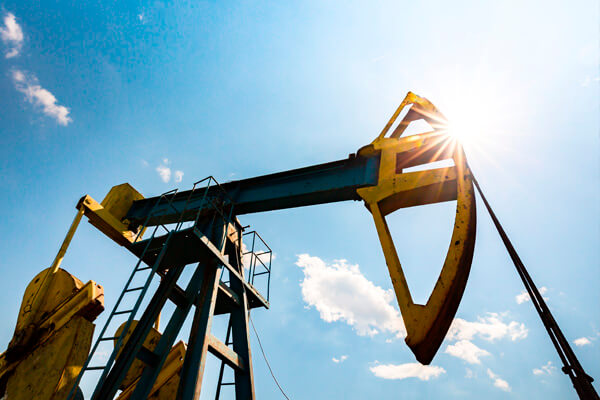
FROM: Interamerican Dialogue / Lisa Viscidi / 9 de Enero de 2018


